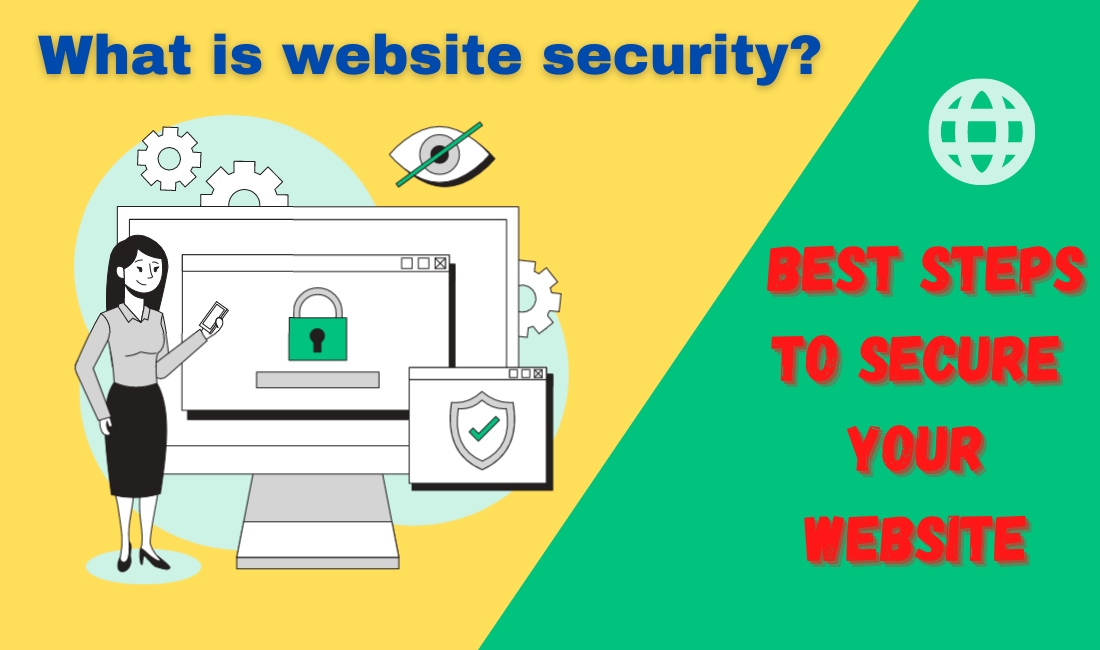Website security is one of the most important aspects of running a successful website. Not only do you need to make sure that your site is protected from online criminals, but you also need to protect yourself and your business from potential data breaches. In this article, we’re going to provide you with seven tips on how to improve website security. So read on and learn how to keep your website safe!
Website security is one of the most important aspects of running a successful online business, and there are a number of steps you can take to protect yourself and your website. In this article, we will outline seven steps you can take to secure your website, and provide tips on how to implement each one.
Website security is one of the most important aspects of running a business online. It’s essential that your website is protected from cyberattacks and hackers, so you can keep your customers safe and maintain a good online reputation.
In this article, we’re going to share seven tips on how to improve website security. We hope these will help you to protect your business and keep your customers safe.
Website Security
Website security is the process of protecting a website from unauthorized access, use, or disclosure.
Many people think that website security is simply a matter of installing antivirus software on their computer. However, this is only one step in securing a website. Website security also includes taking steps to prevent unauthorized access, such as using strong passwords and not giving away your login information.
Another important step in website security is verifying the identity of visitors. This means checking their IP address and making sure that they are who they say they are. You can also use third-party verification services to make sure that visitors are who they say they are.
Finally, it is important to keep your website up-to-date with the latest security patches. This will help to protect you from attacks and malware.
Protecting Your Website with a Password
One of the most important steps you can take to protect your website is to create a password. This will help to protect your website against unauthorized access.
You can also protect your website by installing security software on your computer. This software will help to protect your computer from malware and other online threats.
Finally, you can also protect your website by keeping it up-to-date with the latest security patches. This will help to protect your website against online threats.
Website security is an important part of protecting your business. Protecting your website with a strong password is one of the most important steps you can take.
A password is key to protecting your website. Make sure to choose a strong password that is unique and hard to guess. Use a combination of letters, numbers, and symbols. Don’t use easily guessed words or obvious personal information.
Additionally, always change your password every time you sign in to your website. And don’t store your passwords on your website – store them securely in a different location.
By taking these simple steps, you can protect your website and keep your business safe.
Keeping Your Website Updated
Keeping your website up to date is one of the most important steps you can take to protect it from hackers and cyber-attacks.
One of the most common ways hackers gain access to websites is by stealing login credentials or attacking through vulnerabilities in the website’s code. By keeping your website updated, you can protect yourself against these attacks.
Website security also includes measures such as password protection and secure encryption. By encrypting your website’s data, you can ensure that it is not accessible to unauthorized individuals. You can also use a password manager to keep track of your passwords and keep them safe.
Protecting Yourself from Spyware and Malware
Website security is a key part of protecting your website and its data. Spyware and malware can steal your user data, hijack your website, or even plant fake content on your site.
Here are some simple steps you can take to protect yourself:
1. Keep your software up-to-date. Make sure that all of your software – including your browser, email client, and office applications – are updated with the latest security patches.
2. Use strong passwords. Choose passwords that are hard to guess but easy to remember. Avoid using easily guessed words like “password” or “1111”.
3. Enable two-factor authentication (2FA). This will require you to enter not only your password but also a one-time code sent to your phone or tablet. This will help to protect against unauthorized access to your account.
4. Regularly back up your data. Regularly back up your data in case of a power outage, computer crash, or another unexpected event. This will help you restore lost information quickly and without hassle.

Hacking Exist and How to Protect Yourself from Them
Website security is an important part of any business. Whether your website is a small personal blog or a large e-commerce store, it’s important to take precautions to protect yourself from cyberattacks.
There are a number of ways that hackers can attack your website. They may try to hack into your computer, steal your data, or sabotage your site.
Here are some tips to help you protect yourself from hacking:
1. Use a secure password: Make sure you use a strong password that is not easily guessable. Don’t use the same password for all of your accounts, and never give out your password to anyone.
2. Keep your site up-to-date: Make sure you keep your website updated with the latest security patches and antivirus software. This will help protect you from attacks that use outdated software or vulnerabilities in your site.
3. Protect your computer: Protect your computer with antivirus software and firewall protection. Keep your computer clean and unused parts of your computer secure (e.g., folders where sensitive data is stored).